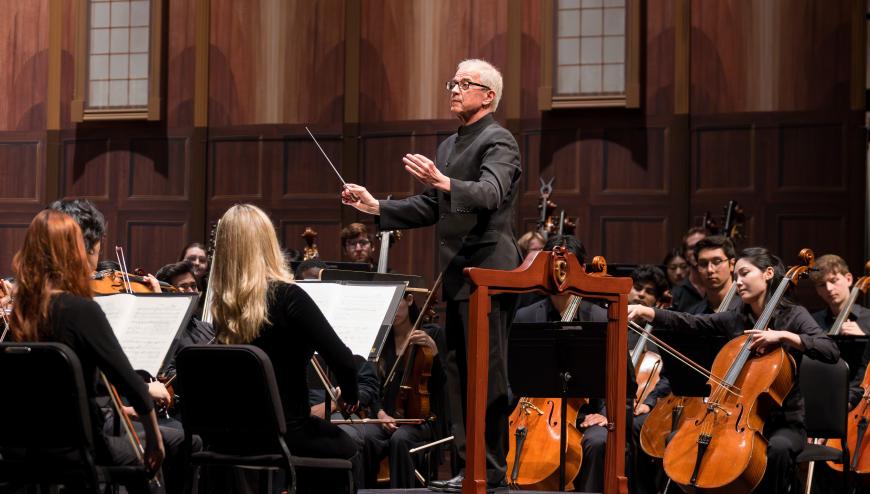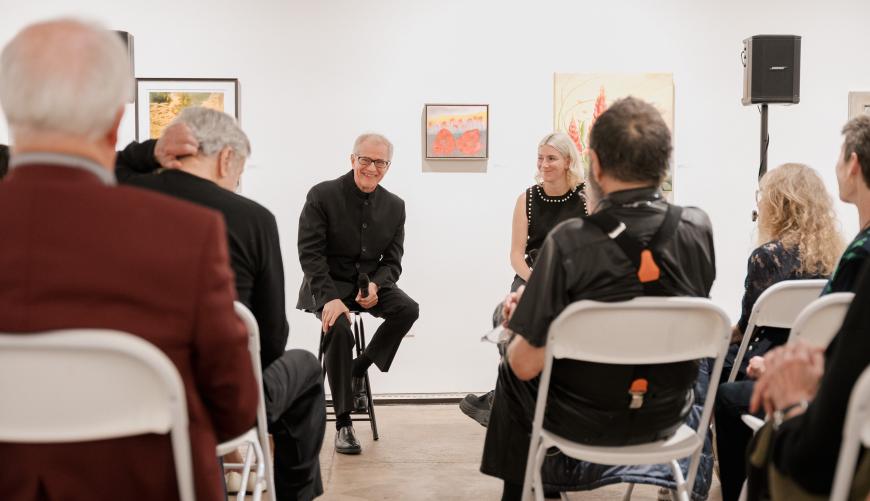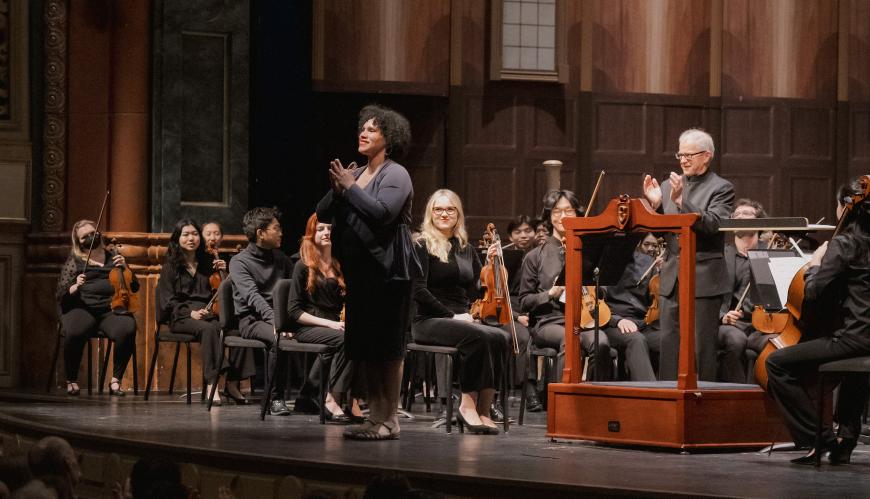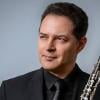
Now in its 76th season of operation, Santa Barbara’s Music Academy festival is, among other cultural virtues, the only orchestral game in town in the city’s otherwise fallow summer months. This tradition is anything but a cultural compromise, however.
Each year, a new batch of bright young fellows arrives from distant places, already entrenched in or on the verge of music careers, and converge into an orchestra of surprising finesse and finish. Conductors of international renown are flown in to mentor this temporary ensemble, called the Academy Festival Orchestra (AFO), and lead Saturday night concerts in Santa Barbara’s main orchestra hall, The Granada Theatre.
One notable change is the absence of long-standing season-opening conductor Larry Rachleff, who died last August. An endowment was recently established in his name.
For the first two concerts of the orchestra’s five-concert series (running through Aug. 5), the main attractions were of the summer-blockbuster type: Stéphane Denève, newly installed as artistic director of the New World Symphony, led Hector Berlioz’s Symphonie fantastique to open the series, and Minneapolis Orchestra Conductor Laureate Osmo Vänskä held forth on the podium for last Saturday’s cosmic big-top favorite, Gustav Holst’s The Planets.

Of keener and fresher interest on the July 1 concert was the West Coast premiere of Jessie Montgomery’s Hymn for Everyone, a melodic roamer of a tone poem, co-commissioned by the Music Academy, the Chicago Symphony Orchestra, and others.
As expected, the young yet powerhouse AFO delivered on the alternately gripping, kitschy, and ethereal landscape of Holst’s score. Despite a few instrumental foibles, Vänskä guided the performance toward its inevitable standing ovation. Frequent moments of romantic bombast aside, Holst’s seven-part suite ends on a gracefully impressionistic note, on the outer reaches of “Neptune, the Mystic.” We were guided out of the cosmos by the disembodied sound of an offstage chorus from the Music Academy’s voice department, angelic or celestial sentries leading homeward.
Interestingly, just as Holst’s 1917 work clearly influenced film-music standards to come (including the scores of John Williams), this concert also featured the fiery comedy of Leonard Bernstein’s Candide Overture as an opener. Bernstein’s charming fanfare, with just enough tartness to invite hints of modernity, sits nicely alongside the stuff of Star Wars soundtracks and Aaron Copland at his kindest.

Rising-star composer Montgomery, who was involved in last year’s 75th anniversary Music Academy festival and who is currently the Mead composer-in-residence with the Chicago Symphony, managed the feat of supplying music at once contemporary and accessible. She asserts a personal voice, one owing to the musical present, but also easily falls in line with melodic and tonal values of the past and of nonclassical idioms.
Fittingly, Hymn for Everyone has as its source a melodic kernel of a hymn which Montgomery wrote during, and literally about, life during the pandemic, with this orchestral expansion transferring and elaborating upon its simple core. What opens as a stately theme amid tolling bells and a looping, descending line continually morphs into newer textural and emotional treatments within a vast symphonic canvas.
Some degree of polytonal tension feeds into the orchestral soup, but often the melodic narrative is laid out in sweeping ensemble strokes. Strings take over the melodic line in bold unison at one point, and things build toward a percussion-powered finale. A sly feint of a resolving chord arrives at the end — in a new key, with a new wafting of hope.
A certain yearning, unsettled character hovers over the piece, which conveys the vulnerability of the pandemic — for the artist and for “everyone.” Still, Montgomery’s Hymn is not a particularly moody or introspective work. It somehow both states its case boldly and allows room for ambivalence and open interpretation. Call it a Hymn for foggy now.




